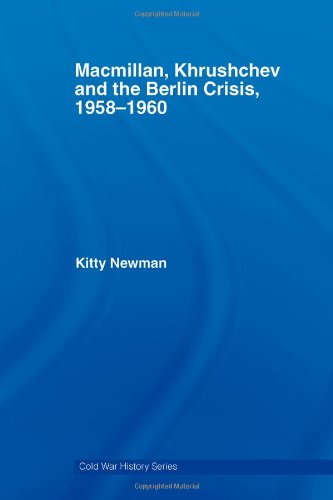

Most ebook files are in PDF format, so you can easily read them using various software such as Foxit Reader or directly on the Google Chrome browser.
Some ebook files are released by publishers in other formats such as .awz, .mobi, .epub, .fb2, etc. You may need to install specific software to read these formats on mobile/PC, such as Calibre.
Please read the tutorial at this link: https://ebookbell.com/faq
We offer FREE conversion to the popular formats you request; however, this may take some time. Therefore, right after payment, please email us, and we will try to provide the service as quickly as possible.
For some exceptional file formats or broken links (if any), please refrain from opening any disputes. Instead, email us first, and we will try to assist within a maximum of 6 hours.
EbookBell Team

4.4
82 reviewsThis new study casts fresh light on the roles of Harold Macmillan and Nikita Khrushchev and their efforts to achieve a compromise settlement on the pivotal Berlin Crisis.
Drawing on previously unseen documents and secret archive material, Kitty Newman demonstrates how the British Prime Minister acted to prevent the crisis sliding into a disastrous nuclear conflict. She shows how his visit to Moscow in 1959 was a success, which convinced Khrushchev of a sincere effort to achieve a lasting settlement. Despite the initial reluctance of the French and the Americans, and the consistent opposition of the Germans, Macmillan’s subsequent efforts led to a softening of the Western line on Berlin and to the formulation of a set of proposals that might have achieved a peaceful resolution to the crisis if the Paris Conference of 1960 had not collapsed in acrimony. This volume also assesses Khrushchev’s role, which despite his sometimes intemperate language, was to secure a peaceful settlement which would stabilize the East German regime, maintain the status quo in Europe and prevent the reunification of a resurgent, nuclearized Germany, thereby paving the way for disarmament.
This book will be of great interest to all students of post-war diplomacy, Soviet foreign policy, the Cold War and of international relations and strategic studies in general.